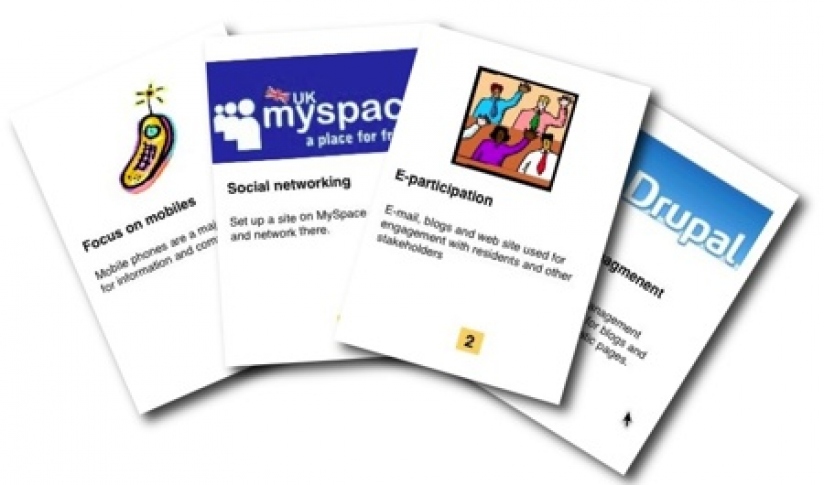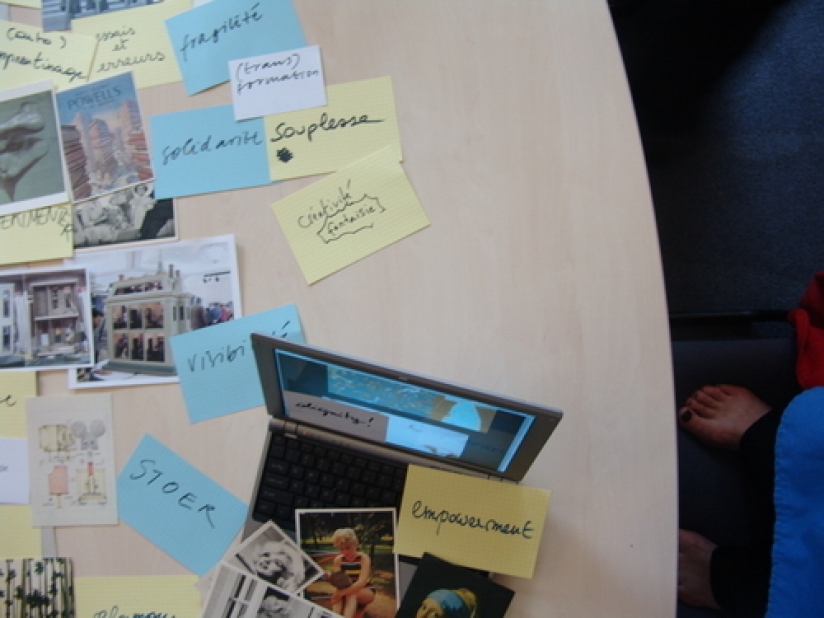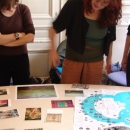The Social Media Game
Contributors: Designing for Civil Society, David Wilcox
By Beth Kanter and David Wilcox (Designing for Civil Society)
Note: An improved version ot the came can be found at http://socialbysocial.net
The Social Media Game was played for the first time at the UK National Circuit Rider ConFerence January 2007 following a presentation by Beth Kanter and David Wilcox.
When further developed, we hope that the game will be useful to those with roles (*) such as circuit riders, technology stewards, social reporters, buzz directors in helping individuals, groups, organisations and networks plan how to use social media.
The purpose of this first simple version is to trigger conversations about what social media tools may be appropriate in different situations, and further explore the issues raised in the presentation by... Read more
Who Wants To Be?
Contributors: The People Speak, Saul Albert
Introduction
What follows is an explanation of a particular set of methods developed since 2004 by The People Speak to help large groups of people with highly diverse ideas, opinions and points of view to make important decisions as a group, to come to creative compromises, and to have fun in the process.
This explanation may serve as a guide for others wishing to facilitate decision making in related situations. It is likely that the methods will require adaptation in each instance. If you or your group choose to use these strategies and techniques and have observations or improvements to suggest, please contribute them to the project wiki.
Spontaneity
Who Wants to Be? is a spontaneous, democratic gameshow, where the audience makes up the questions, has all the answers and sets the rules. The basic premise is that every member of the audience has a vote, and that they can propose ideas... Read more
Aprendizaje y uso de software libre por y para mujeres
Contributors: Constant, Laurence Rassel
Advertencias
El ejemplo mencionado abajo puede aplicarse a otro grupo minoritario en el uso y la programación de software libre (*).
El uso de software libre es imprescindible.
El siguiente ejemplo está basado en una experiencia llevada a cabo desde noviembre de 2006. La "receta", el "manual" presentado enviado por Constant, es el resultado de una experiencia colectiva y continua de organizaciones y personas, como los talleres-encuentros "Sábados, mujeres y software libre" ("Samedies, Femmes et Logiciels Libres").
Pensados en un principio como auto-formación... Read more
Co-Authoring Exercise
Contributors: Yuwei Lin, Enrico Zini
a) Concept, practise, tool in which it is inspired upon
A lot of creative work nowadays are done collectively, spontaneously and synchronously. The growth of Wikipedia shows that wiki can be used to create and share useful knowledge through co-authoring. However, how to collaborate, compromise different epistemologies is a challenge. This game is designed to instruct participants to find their common interests and common ground in making a story.
b) Goals
• identifying common interests and common ground
• learn to put different understandings down into one story: collective story-writing
• learn how to choose which group to work with
• learn how to keep participants interested in working with the group
• promoting diversity and pluralism: This game will promote a greater understanding of why diversity is vital in the current organisational context by working together to create a good piece of story,... Read more
iCalendar Aggregation
Contributors: Yuwei Lin, Enrico Zini
a) Concept, practise, tool in which it is inspired upon
There are diverse ranges of knowledge and resources scattered on the Internet. And it would be helpful to aggregate and merge them to better information exchange and sharing. Good technological examples include: 1) Blog planet, a way of aggregating all the blogs written by people in the same network; 2) RSS Feed, a way of getting informed of new information if subscribed to the service. This game will show how such a thing is done in a social setting and related educational aspects.
b) Goals
• Creating a massive pool of resources by bringing together small individual ideas/things.
• Facilitating calendar information exchange.
• Identifying common interests and common ground.
• Learning how to keep participants interested in working with teams.
c) Operating instructions
1. Participants will be assigned a piece of... Read more




 IMAGE
IMAGE IMAGE
IMAGE